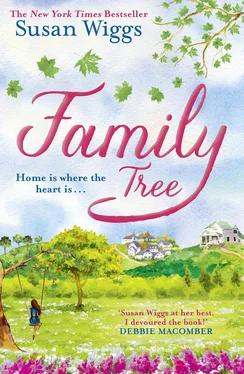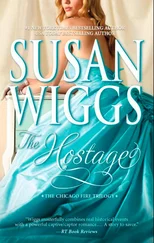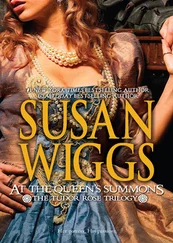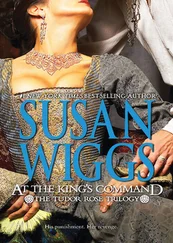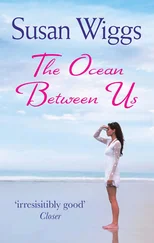“Exactly. He’s the perfect combination of Wild West cowboy and Cordon Bleu chef.” CJ beamed, making no secret of her admiration. She perused the magazines on the coffee table. Us Weekly . TV Guide . Variety. All had featured the show in the past six months. “Are these the latest articles?”
“Yes. Help yourself to anything that catches your eye.” Annie’s other prized book lay nearby—a copy of Lord of the Flies, a vintage clothbound volume in a sturdy slipcase, one of three copies she possessed. She hoped the reporter wouldn’t ask about that.
CJ focused on other things—a multipage spread in Entertainment Weekly, featuring Martin cooking in his signature faded jeans and butcher’s apron over a snug white T-shirt, offering a glimpse of his toned and sculpted bod. His cohost, Melissa, hovered at his side, her pulled-together persona a perfect foil for his casual élan. The caption asked, Have we found the next Jamie Oliver?
Food as entertainment. It was a direction Annie hadn’t contemplated for The Key Ingredient . But who was she to argue with ratings success?
“He has definitely come into his own on the show,” CJ remarked. “But today’s about you. You’re in the limelight.”
Annie talked briefly about her background—film school and broadcasting, with a focus on culinary arts—which she’d studied under a special program at NYU’s Tisch School of the Arts. What she didn’t mention was the sacrifice she’d made to move from the East Coast to L.A. That was part of Annie’s story, not the show’s story.
“When did you make the move to the West Coast?”
“Seems like forever ago. It’s been about ten years.”
“Straight out of college, then?”
“That’s right. I didn’t expect to wind up in L.A. before the ink on my diploma was dry, but that’s pretty much how it went,” Annie said. “It seems sudden, but not to me. By the time I was six, I knew I wanted to have a show about the culinary arts. My earliest memories are of my grandmother in the kitchen with Ciao Italia on the local PBS station. I used to picture Gran as Mary Ann Esposito, teaching the world to cook. I loved the way she spoke about food, handled it, expressed herself through it, talked and wrote about it, and shared it. Then I’d do cooking demos for Gran, and later for anyone who would sit through one of my presentations. I even filmed myself doing a cooking show. I had those old VHS tapes turned into digital files to preserve the memories. Martin and I keep meaning to sit down and watch them one of these days.”
“What a great story. You found your passion early.”
Her passion had been born in her grandmother’s kitchen when Annie was too young to read or write. But she’d never been too young to dream. “I assumed everyone was passionate about food. Still do, and it’s always a surprise when I find out otherwise.”
“So you were into food even before you met Martin.”
Martin again. The world assumed he was the most interesting thing about Annie. How had she let that happen? And why? “Actually,” she said, “everything started with a short documentary I made about Martin, back when he had a food cart in Manhattan.”
“That very first short went viral, didn’t it? And yet you’re still behind the scenes. Do you ever want to be in front of the camera?”
Annie kept a neutral expression on her face. Of course she did, every day. That had been her dream, but the world of commercial broadcasting had other ideas. “I’m too busy with the production to think about it,” she said.
“You never considered being a cohost? I’m just thinking of what you said earlier about those cooking demos …”
Annie knew what CJ was getting at. Reporters had a way of sneaking into private places and extracting information. CJ wouldn’t find any dirt here, though. “Leon Mackey, the executive producer and owner of the show, wanted a cohost to keep Martin from turning into a talking head. Martin and I actually did make a few test reels together,” she said. “Even before we married, we wanted to be a team both on camera and off. It seemed romantic and unique, a way to set us apart from other shows.”
“Exactly,” CJ said. “So it didn’t work out?”
Annie’s hopes had soared when she and Martin had made those early reels; she thought they might choose her. But no. The show needed someone more relatable, they said. More polished, they said. What they didn’t say was that Annie’s look was too ethnic. Her olive-toned skin and dark corkscrew curls didn’t jibe with the girl-next-door vision the EP was going for. “Not the right fit for this show,” Leon had said. “You look like Jasmine Lockwood’s kid sister. Could confuse viewers.”
Jasmine Lockwood hosted a wildly popular show about comfort food on the same network. Annie didn’t see the resemblance, but she surrendered, putting the show ahead of her ego.
“Anyway,” she said with a bright smile, “judging by the ratings, we found the right combination for the show.”
CJ sipped the water, holding the straight-sided glass bottle up to admire it. “When did Melissa Judd enter the picture?”
Annie paused. She couldn’t very well say it was when Martin met her in his yoga class, even though that had been the case. At the time, Melissa had a gig as a late-night shopping network host. Her looks, she claimed in the pretaping interview with a straight face, had always gotten in the way, because people failed to see past her beauty to recognize her talent.
“She and Martin had that elusive chemistry that’s impossible to manufacture,” Annie told the reporter, “so we knew we had to have her.” Annie didn’t mention the prep work it had taken to get the new cohost ready for the role. Melissa’s delivery was shrill and rough, her late-night-huckster voice designed to keep people awake. Annie was tasked with bringing out Melissa’s more hidden gifts. She had worked long and hard to cultivate the perky, all-American girl persona. To her credit, Melissa caught on quickly. She and Martin became a dynamic on-air team.
“Well, you certainly put together a winning combination,” CJ observed.
“Um … thanks.” Sometimes, when she watched the easy banter between the two hosts—more often than not, banter she had painstakingly scripted—Annie still caught herself wishing she could be in front of the camera, not just behind the scenes. But the formula was working. Besides, Melissa had an ironclad contract.
Annie knew she should bring the conversation back around to her role on the show, but she was thinking about breakfast again. Scones, she thought. With a sea-salt crust and maple butter.
“Tell me about the first episode,” CJ suggested. “I just streamed it again last night. The key ingredient was maple syrup, which is kind of perfect, considering your background.”
“If by ‘perfect,’ you mean ‘borderline disaster,’ then yes,” Annie said with a grin. “Maple syrup has been my family’s business for generations.” She gestured at a painting on the wall, a landscape her mother had done of Rush Mountain in Vermont. “It seemed like the ideal way to launch the show. The production set up, literally, in my own backyard—the Rush family sugarbush in Switchback, Vermont.”
She took a breath, feeling a wave of nausea. She couldn’t tell whether the discomfort was caused by the memory, or by the empty stomach. Could be she was worried about riling up something from her past. She still remembered that feeling of unease, returning to the small town where she’d grown up, surrounded by everyone who had known her for years.
Fortunately, the budget had only permitted them to spend seventy-two hours on set there, and each hour was crammed with activity. Every possible thing had gone wrong. The snow had melted prematurely, turning the pristine winter woods into a brown swamp of denuded trees, strung together with plastic tubing for the running sap, like IV meds reaching from tree to tree. The sugarhouse, where the magic was supposed to happen, had been too noisy and steamy for the camera crew to film. Her brother, Kyle, had been so uncomfortable on camera that one of the editors had actually asked if he was “simple.” Melissa had come down with a cold, and Martin had spoken the dreaded I told you so.
Читать дальше
